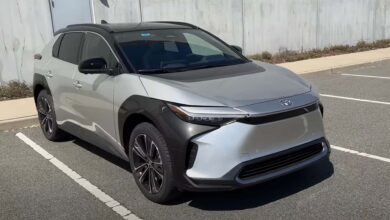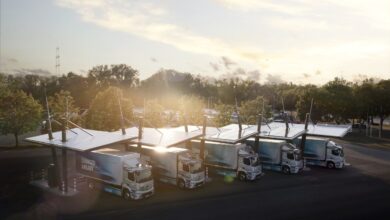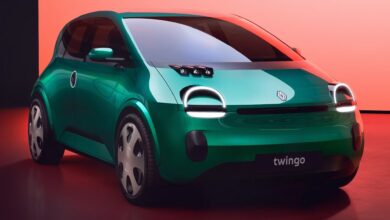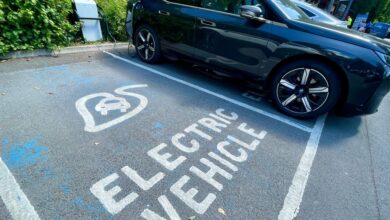Biden EV Tariffs Condemn U.S. Auto Industry To “Slow But Certain Death” — Automobility
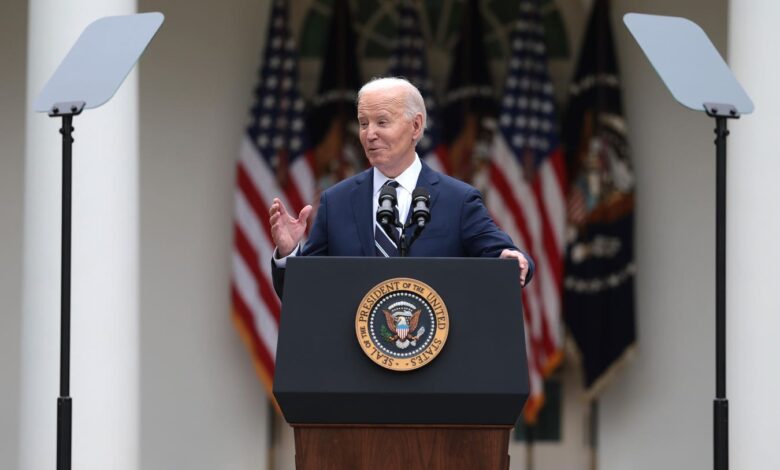
U.S. President Joe Biden announces increased tariffs on Chinese products to promote American … [+]
The Biden administration said this week the U.S will quadruple tariffs on Chinese EVs in a move aimed at protecting American workers and businesses from unfair Chinese trade practices. One American long-time auto industry executive living in China says, however, the increase won’t help the long-term staying power of the industry or its jobs.
“If this was designed to make the U.S. industry more competitive, it does just the opposite,” said Bill Russo, CEO of Shanghai-headquartered consulting firm Automobility. The 20-year China veteran first arrived as the head of North East Asia at Chrysler, and founded Automobility in 2017.
“It’s disappointing to me as someone who comes from the (U.S.) industry and who wants it to be competitive, to see this capitulation to the status quo,” Russo said. “This is not going to keep the U.S. auto industry in the race to the future of alternative propulsion.”
Instead, he said, it “condemns them to a slow but certain death” as the global industry moves toward technology that doesn’t rely on oil. “It gets them stuck to the profits of the oil- and gas-powered economy,” Russo said.
Electric vehicles — marked with green-colored license plates —are seen on a road on May 15, 2024 in … [+]
China, home to the world’s largest auto market, is the biggest maker of EVs; city streets are dotted with green license plates marking an electric vehicle. Six of the top 10 richest auto industry billionaires on the Forbes Real-Time Billionaires List hail from the country. Zeekr, a Chinese automaker controlled by billionaire Li Shufu, raised $441 million in a U.S. IPO this month; its shares closed at $26 on Friday compared to a $21 IPO price on optimism about future global growth.
The White House announcement focused on China’s industrial policy and trade practices. “With extensive subsidies and non-market practices leading to substantial risks of overcapacity, China’s exports of EVs grew by 70% from 2022 to 2023—jeopardizing productive investments elsewhere,” it said. “A 100% tariff rate on EVs will protect American manufacturers from China’s unfair trade practices.” The European Commission is also probing China’s EV exports.
What the U.S. needs, Russo said, is “some form of incentive” to spur investment in newer technologies than today’s mainstream ones that in turn will lead to lower costs. “China did that… and they (now) lead the race to future alternative propulsion,” he said. In particular, Chinese manufacturers have notably attacked the highest cost component of an EV – the battery. “That’s what companies like BYD did with a vertically integrated battery supply chain,” Russo said. “It’s what the U.S. and rest of the world needs in order to make a competitive vehicle in the current competitive landscape.” BYD, backed by Warren Buffett’s Berkshire Hathaway and led by billionaire Wang Chuanfu, is China’s largest home-grown EV maker.
“For all intents and purposes, (traditional auto U.S. leaders) are not competitive in a race to a future that includes alternative propulsion technologies,” he said. “There is no way that the 21st century is going to exit with a propulsion technology invented in the 19th century. Leaving this up to industry or protecting the status quo – which seems to be what the administration is trying to accomplish — is not an acceptable solution if you’re trying to be competitive as an industry.”
The continued competitive pressure from China was apparent just this week. The country has developed a EV battery that charges in 10 minutes, according to a report by the International Energy Agency.
Bill Russo, then East Asia head of Chrysler, signs a contract with Beijing Auto Chairman An Qingheng … [+]
“What we have to recognize is in this race to the future of mobility, the auto industry should be considered a high-tech industry,” Russo said. “It should not be considered a Rust Belt industry.”
See related posts:
Chinese Investments, Jobs Help Its Appeal In Europe: Forbes Serbia
New Pew Survey Underscores Negative U.S. Views Of China Amid Strains
The 10 Richest Chinese Billionaires
@rflannerychina
